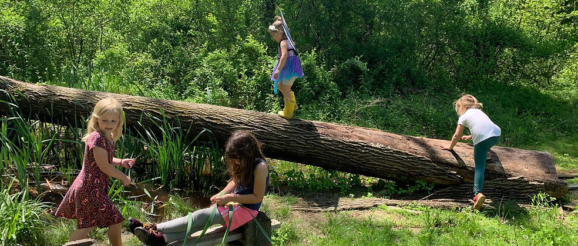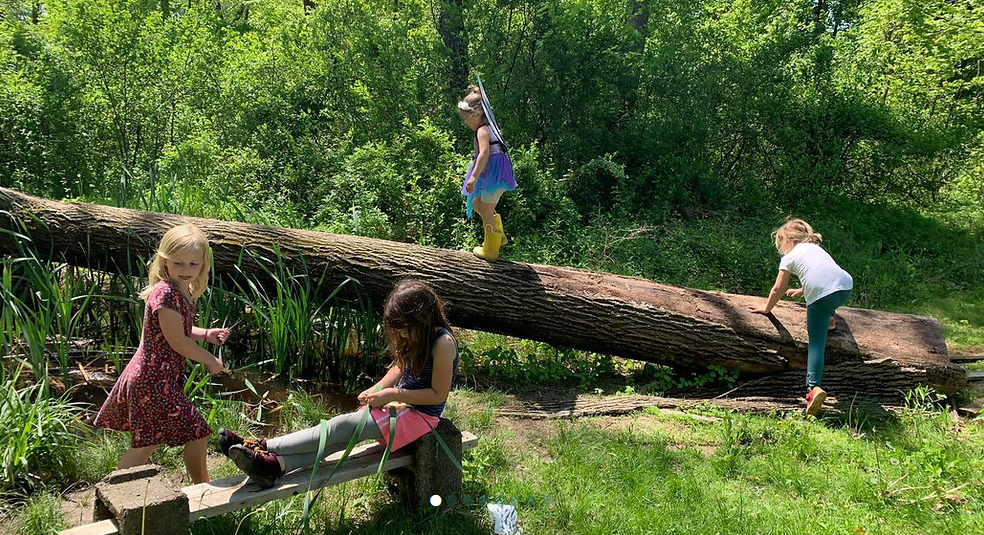Permissionless innovation in K-12 education: Everyday K-12 civic entrepreneurs respond to pandemic, create unconventional education sector


Editor’s note: This commentary from Bruno V. Manno, senior advisor for the Walton Family Foundation education program, is an exclusive to reimaginED. The Foundation provides support to VELA Education Fund, mentioned in this piece.
Many stories about COVID-19 describe its damaging effects on K-12 education, from closing schools to enrollment declines to student emotional problems and learning loss. These stories are true and should be told.
But so should another group of stories — hopeful ones — that describe how K-12 civic entrepreneurs in America’s communities are creating new learning opportunities for families and their children. These everyday grassroots entrepreneurs are creating a new unconventional K-12 education sector through permissionless innovation.
Here are three features of that approach.
First, these entrepreneurs want to change things, and, typically, do not ask permission from regulatory agencies to start their ventures. When they deal with bureaucracy, they curb its suffocating effects.
Second, families enroll their children in these innovative programs because they are accommodating and meeting the new learning needs of families following the pandemic.
Third, these entrepreneurs believe their ventures are adding unique value to people’s lives by creating what I call a new K-12 sector of unconventional learning opportunities. Their programs are flexible and tailored to student needs compared to the traditional K-12 system.
In short, the maxim of these K-12 civic entrepreneurs goes something like this: “Just do it. They will come. And together, we can create something new and valuable.”
A recent report from VELA Education Fund describes these new ventures. It is not a scientific sample of these programs, so we cannot draw general conclusions that apply to all types of new learning ventures. But the results are like what pollsters find in focus groups. They provide general themes and other information that offer insights into an emerging sector of new K-12 learning environments.
The Fund surveyed leaders of 801 new learning ventures outside the traditional K-12 public and private school systems that received $7.5 million in VELA support since 2019. It received 413 responses from these leaders who founded new learning models that include microschools, virtual schools, pods, homeschool coops and programs, hybrid homeschools, and private schools. More than half (54%) are microschools or homeschool coops.
Here is what we are learning about these community enterprises.
The ventures
These ventures are young in their organizational lifecycle. At the time of their first VELA grant, more than 7 in 10 (72%) were three or less years old, with 3 in 10 (30%) less than one year old.
A majority (56%) are nonprofits, almost 3 in 10 (28%) for-profits, and the rest intend to incorporate as nonprofits. Nearly all of them (95%) have plans to grow.
Only 10% own their own space, with the rest renting space from faith organizations, corporate or individual private space, and public space like libraries or schools.
Their families
These ventures are not only for affluent families. Many have a core focus serving low income or historically underserved families. Almost 4 in 10 (38%) do this, while over 9 in 10 (93%) serve some portion of these groups.
Their finances
These ventures receive minimal external funding, with over 7 in 10 (73%) receiving 2022 external support only from their VELA grant and only 1 in 10 (10%) accessing public dollars. Over 8 in 10 (84%) charge tuition and fees or sell products and services, with 7 in 10 (70%) using tuition and fees as primary revenue sources.
Families receive discounts, scholarships, and reduced or free services. Some organizations have subscription fees or membership dues. They also use sliding income scales to determine a family contribution and are willing to exchange goods or services rather than receive an actual dollar payment.
So, grassroots K-12 civic entrepreneurs are creating a new sector of unconventional learning opportunities for families and young people. Permissionless innovation is the best way to describe their approach.
To summarize:
- These ventures are mostly nonprofits and use many models and approaches to providing learning environments.
- They are young organizations, rent rather than own space, and want to grow.
- Their leadership is getting more racially diverse.
- They enroll diverse families, not only affluent white families, with many serving historically underserved families.
- Finances rely on tuition and fees and selling products and services, with few seeking grants and loans.
- They offer scholarships and other ways to reduce fees for those who need financial support.
- This grassroots dynamism and the innovation it involves is a local form of democratic participation that improves community life.
The permissionless innovation of grassroots civic entrepreneurs at the heart of this dynamism is creating new K-12 sector of community learning options to help young people flourish as adults. K-12 stakeholders and other community leaders should support these ventures and the families that use them.
The post Permissionless innovation in K-12 education: Everyday K-12 civic entrepreneurs respond to pandemic, create unconventional education sector appeared first on reimaginED.
